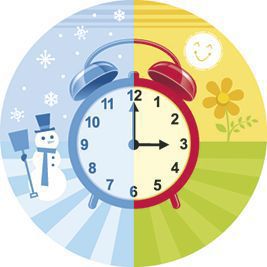Daylight Savings: What it does to diet and health
Daylight savings can throw everyone off, especially when it comes to routines we are used to sticking too. Our diet and health start to get affected, and not in a good way. However, what we can do to prevent a decline in our diet and health is to be educated on what happens and what you can do to help.
Appetite:
Although it is only a difference by one hour, you eating habits can become greatly affected. Your body has become used to the fact that you eat meals at a certain time in day (e.g. lunch at 12:30), therefore with the time change you may notice yourself getting hungrier than normal. It is shown that people tend to consume more saturated fat during the winter months than in the summer.
Recommendation: Consider meal prepping in order to prevent unhealthy snacking on high saturated fat foods. What is also recommended is slowly changing the time in which you would eat certain meals, this way you won't be starving you body for longer than it would like.
Mood:
Less daylight can cause an increase in cravings. Sunlight helps with the release of serotonin (the happy feeling), therefore when we have less sunlight less serotonin is released. Carbohydrate consumption can also help increase serotonin, which could be why you crave more carbohydrates during the winter months.
Recommendation: Try to work more complex carbohydrates (beans, whole grains, vegetables, rice) into you diet during the winter months and less simple carbohydrates (sugary foods, white bread, soda/juices). Complex carbohydrates are better for the body than simple carbohydrates.
During Covid Times:
It is understandable that during these times being stuck at home you may crave food at a higher amount especially when it comes to comfort food. Don't stress it is completely normal to crave these foods.
Recommendation: Everything is moderation right? However, do make sure it is in moderation. If you notice yourself consuming these foods more than normal maybe try to put a healthier spin on them. Try adding new seasonal vegetables or work to make the grains, whole grains. Make it interesting for yourself.
-AV
Sources:
https://www.everydayhealth.com/diet-nutrition/why-do-we-eat-more-in-winter.aspx
https://www.nbcnews.com/know-your-value/feature/daylight-saving-time-4-surprising-health-effects-falling-back-ncna929546
https://www.elitedaily.com/p/heres-how-daylight-saving-time-affects-your-appetite-according-to-experts-13070866
https://www.massnews.com/what-is-the-difference-between-simple-and-complex-carbohydrates/



.png)
Comments
Post a Comment